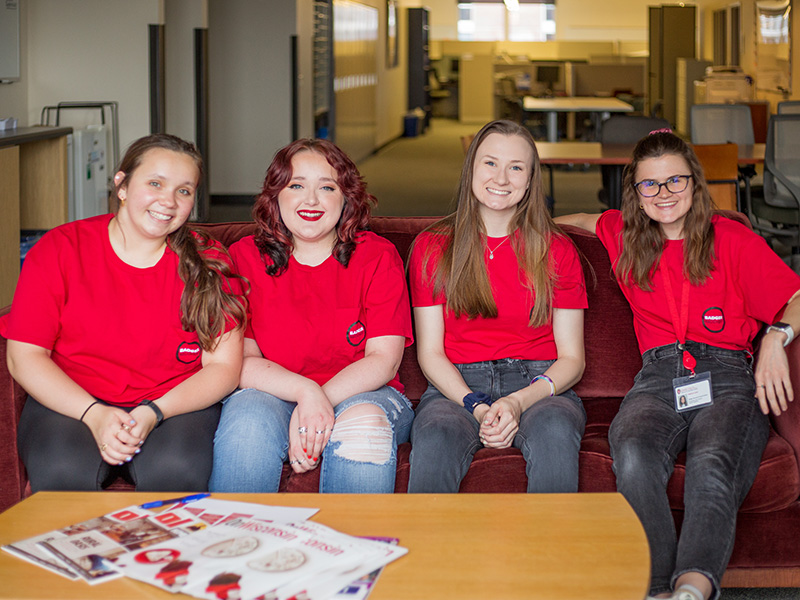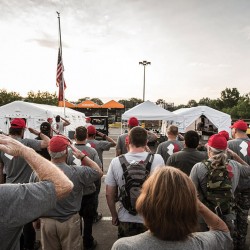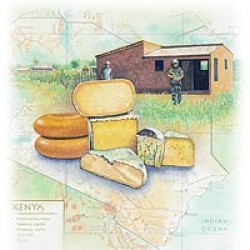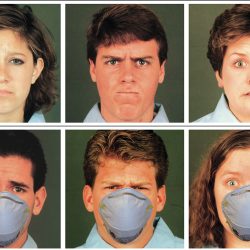Sober Support Network
Badger Recovery helps students dealing with alcohol and substance misuse.

Project assistant Maura Swan (third from left, with current and former staff): “For those in recovery, it can feel hard to find other people like them.” April Szafranski
On a Monday night, on the second floor of College Library, students gather in a meeting room. This isn’t a study group. It’s a meeting for Badger Recovery, which creates community and support for UW–Madison students who are in active substance use recovery, as well as those who are just beginning to explore changing their relationship with alcohol and drugs. Since its inception in 2020, the organization has facilitated peer support groups, social events, and recovery coaching on campus.
Students struggling with addiction who want to connect with others and build friendships face unique challenges. They may worry about experiencing stigma when sharing their struggles with new friends — or about attending social events where potential triggers are present. The organization’s project assistant, Maura Swan ’23, MSx’25, says, “For those in recovery, it can feel hard to find other people like them.” The group fights this isolation by connecting students who have similar challenges.
“We believe recovery is individually defined,” says assistant director of high-risk drinking Jenny Damask, “so we welcome students at different points in their journey.”
To support the diverse experiences of its members, Badger Recovery hosts weekly meetings for students (including graduate students) and friends and family. Participants engage in discussion topics such as coping with triggers, building support networks, showing gratitude, and setting boundaries. One member, who asked to be anonymous, says, “It really only takes listening to someone else share a struggle to lift some of your own burden — and hopefully also theirs.”
The group recently hired a full-time collegiate recovery specialist and has expanded opportunities to create community through events such as bowling, rock climbing, and community dinners. Currently, Badger Recovery’s primary goal is to find a permanent home, which could facilitate casual hangouts, substance-free events, and community-building beyond recovery meetings.
For now, even without a dedicated space, the group provides “a place to be accepted, seen, and cared for by peers,” according to one undergraduate. “I can just be whatever I am.”
Published in the Fall 2024 issue



Comments
No comments posted yet.